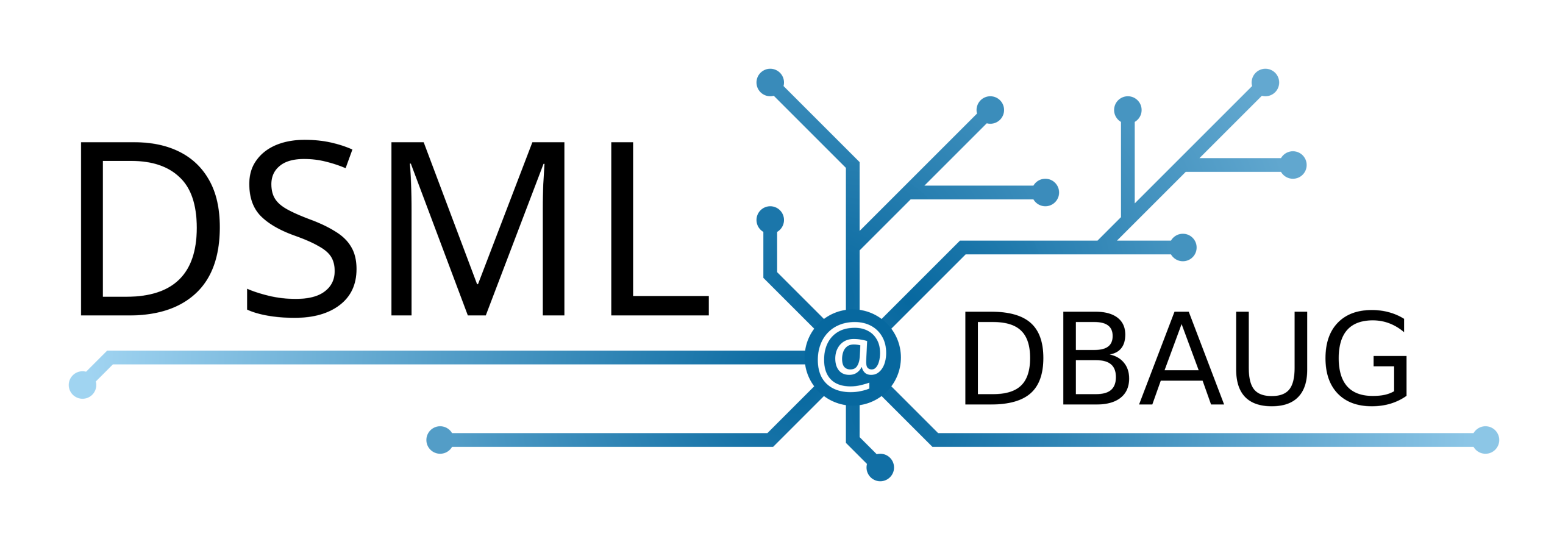DSML@DBAUG
Lighthouse collaboration platform
Data science and machine learning in
civil, environmental and geomatic engineering

The Initiative
Motivation

With the increasing amount of data collected in various domains, the importance of data science in many disciplines, such as transportation, spatial planning and environmental engineering, has been increasing. It is crucial to go beyond the state of the art and this implies not simply applying machine learning methods that are borrowed from other domains, but also developing them further and driving the field from the application point of view.
From the methodology side, there are many commonalties between different disciplines and there are also a lot of common needs in terms of empowering doctoral students (who are typically experts in their special fields but not necessarily machine learning specialists) to perform data science related tasks at the highest scientific level and solving the challenges in their pertinent discipline.
Goal

The goal of the platform is to establish a strong cross-disciplinary data science platform prompting visibility to the broader scientific community and public (particularly to potential students and doctoral students). The goal of the platform is to connect cross-disciplinary researchers at the department on the methodological level and strengthen doctoral students and junior researchers in the machine and deep learning methodology. By strengthening these interdisciplinary skills, research output can be enhanced and accelerated.
The platform has been approved at the professor’s conference in May 2020 and has started its first activities in the autumn semester 2020. 18 chairs across different disciplines have joined the initiative already.
Education

Since junior researchers are in the focus of the DSML platform, two new lectures have been initiated at doctoral student level in “Doctoral Seminar Data Science and Machine Learning in Civil, Environmental and Geospatial Engineering” and “Frontiers in Machine Learning Applied to Civil, Environmental and Geospatial Engineering”.
Ten lecturers from different chairs have been involved in the two seminars in 2020 providing feedback from different interdisciplinary perspectives (2020 with Chatzi, Corman, Fink, Hajnsek, Kraus, Lukovic, Raubal, Schindler, Soja, Sudret). The positive feedback of the students has encouraged continuing the PhD seminars in 2021, with Chatzi, Corman, Fink, Hajnsek, Kraus, Lukovic, Schindler, Soja, Van Strien involved as lecturers.
Furthermore, Computational Science Coffee series has been organized in autumn 2020 by David Kammer and David Vetsch.
Events

Two inaugural workshops have been organized in September and October 2020, with more than 50 researchers participating in each of the workshops. The workshops provided an overview how different research groups at the department are using machine learning and data science in their ongoing research.
Furthermore, the focus of the workshops was on discussing how the DSML platform should be shaped and what the expectations of the different researchers are.
Additional cross-disciplinary activities are planned in the coming semester, including Kaggle competitions and “speed dating” events.
Participating chairs
- Prof. B. Adey, IBI
- Prof. I. Burgert, IfB
- Prof. E. Chatzi, IBK
- Prof. F. Corman, IVT
- Prof. A. Grêt-Regamey, IRL
- Prof. I. Hajnsek, IfU
- Prof. S. Hellweg, IfU
- Prof. D. Kammer, IfB
- Prof. W. Kaufmann, IBK
- Prof. M. Raubal, IKG
- Prof. K. Schindler, IGP
- Prof. B. Soja, IGP
- Prof. R. Stocker, IfU
- Prof. B. Sudret, IBK
- Prof. A. Wieser, IGP